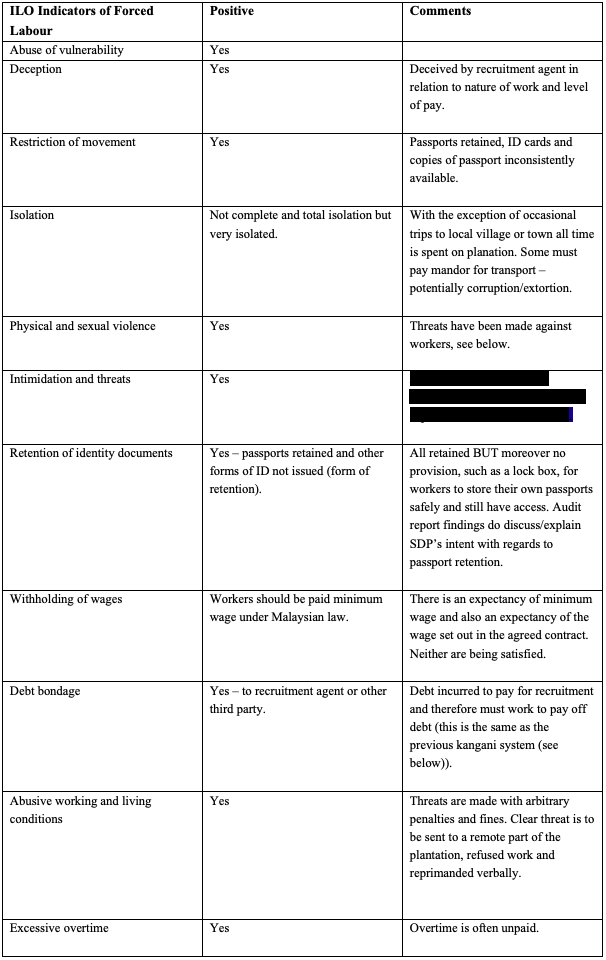Malaysia's Sime Darby Accused Of Forced And Child Labour By Anti-Trafficking Group
The group has petitioned to the US Customs and Borders Protection to ban palm oil and palm oil products produced by Sime Darby Plantation Berhad. Meanwhile, the company said that it will look into the "serious allegations".
Liberty Shared, a Hong Kong-based anti-trafficking group, has petitioned the US Customs and Borders Protection concerning alleged conditions of forced labour and child labour at Sime Darby Plantation
In the petition, the group's managing director Duncan Jepson has asked the US Customs to ban imports of palm oil products by Malaysia's Sime Darby Plantation (SDP), the largest listed palm oil company globally.
While the petition was submitted on 20 April, Shared Liberty made it public this week.
According to the petition's summary, accessed by SAYS, the responses from workers and civil society experts interviewed by Shared Liberty reveal "a wide range of experiences in terms of worker recruitment, working conditions, and treatment on the plantations" by managers, supervisors, and workmen.
"For example, workers described the imposition of arbitrary penalties, threat of and actual sexual harassment, physical threats and abuse, various and inconsistent deductions in pay, varying conditions of accommodation, and fees charged for basic facilities," the Liberty Shared managing director said.
"Too many structural weaknesses"
Liberty Shared said that "the descriptions by the workers of their working and living conditions and treatment" build a cogent argument that "there are too many structural weaknesses in the implementation of SDP's corporate governance, risk management, and internal controls to provide sufficient preventative measures and protection against forced labour conditions for plantation workers".
Additionally, the group said that there are also issues with how the company recruits foreign workers.
According to the summary, while foreign workers can be recruited through the government mechanism, many are recruited by independent private commercial operations.
"The activities of these independent recruitment agents regularly involve unlawful practices and there is a long history of recruitments agents, particularly from India, engaging in such activities."
The group said that a number of workers described how they had been deceived into believing they would be working in factories and that the salary level would be higher than that which they actually receive
The foreign workers also claimed that they had to pay recruitment fees.
A number of them had to "take out loans, some at high-interest rates, to pay the fees, and in some cases, further fees were raised after initial payments had been made".
"All workers say they paid the recruitment agents for the arrangement of the job, transport, and entry into Malaysia. No worker interviewed said they received minimum wage once deductions were taken into account, and some said they were unable to determine the wage they would receive," read the summary.
Additionally, workers complained of potential and actual physical threats.
In its petition, Liberty Shared included a table to highlight the labour conditions and treatment described by the foreign workers. It is based on the International Labour Organization's (ILO) Indicators of Forced Labour.
In contrast to foreign workers, the group said that local workers described "a very different relationship" with the plantation
"Unlike foreign workers, local workers are not on fixed-term contracts but regularly have an intergenerational relationship with the plantation/estate, with many children born on a plantation/estate who then seek to work on the same plantation/estate," the summary of the petition read.
Housing was the primary motivation for locals to work on a palm oil plantation. However, the housing contract does not seem to give any assurances of continuity or a secure term of tenancy.
Unlike foreign workers, local workers were not isolated and their identity cards were not retained. They also were not forced into excessive overtime, according to local workers who were interviewed.
Allegations of child labour at Sime Darby Plantation
Liberty Shared said that local workers reported that children of local plantation workers were used by a plantation manager and workmen "to place rat poison at the foot of the palm oil trees".
The alleged incident happened less than four years ago, the workers said, explaining that while the workmen had supported the use of children for this task, the manager who approved this activity departed.
"The new manager did not approve of this practice and it was stopped. However, that manager has now left and workers fear that their children will again be used for poison placement or some other such purpose," the group said in its summary, adding that the children were not given any protective equipment.
Sime Darby Plantation did not immediately respond to SAYS for a comment, but it addressed the petition in a statement to Reuters
In the Reuters report by Mei Mei Chu, the company said that it will look into what it described as "serious allegations" of forced and child labour conditions in its estates.
The allegations by LIberty Shared, Sime Darby added, are against its public commitments to responsible agriculture and human rights.
"In the spirit of openness, transparency, and collaboration that Sime Darby Plantation has always upheld, we intend to engage with Liberty Shared to further understand these allegations in detail to enable us to conduct a thorough and immediate investigation, and take corrective action, as the findings may warrant," the company said in a statement, as reported by Reuters today, 8 July.
File photo of the Sime Darby Plantation headquarters in Petaling Jaya.
Image via Lim Huey Teng/ReutersEarlier this year, a study showed that app-based services that once used to be a side hustle for many have now become a major source of income for close to 250,000 gig workers around the country:



